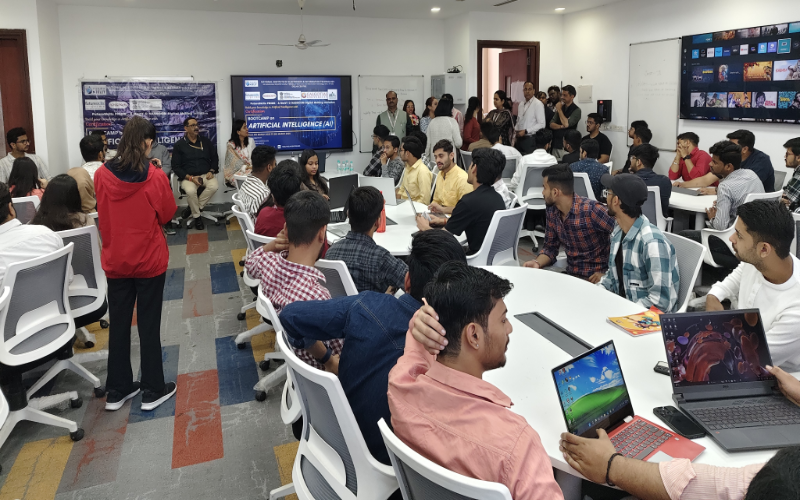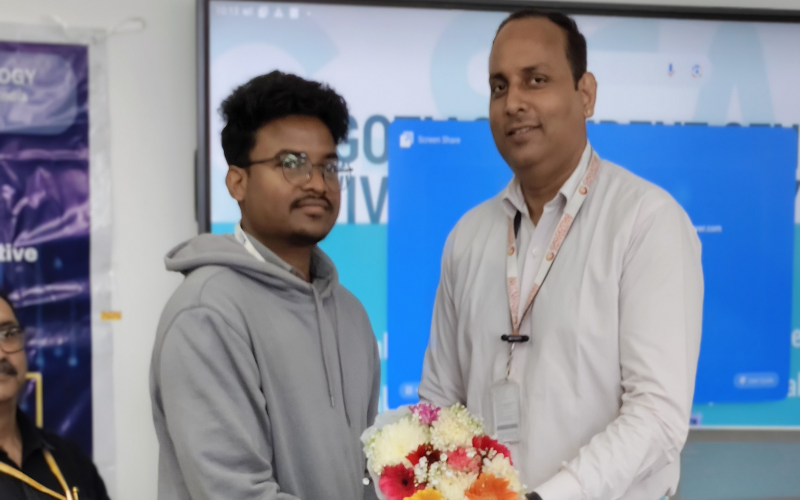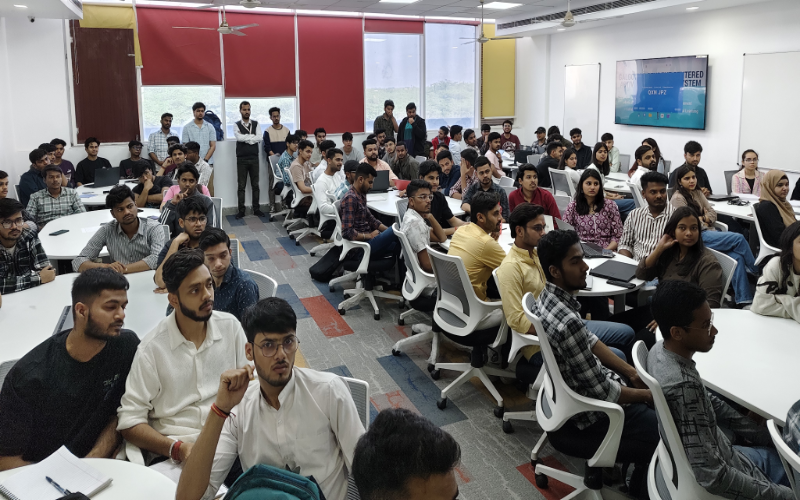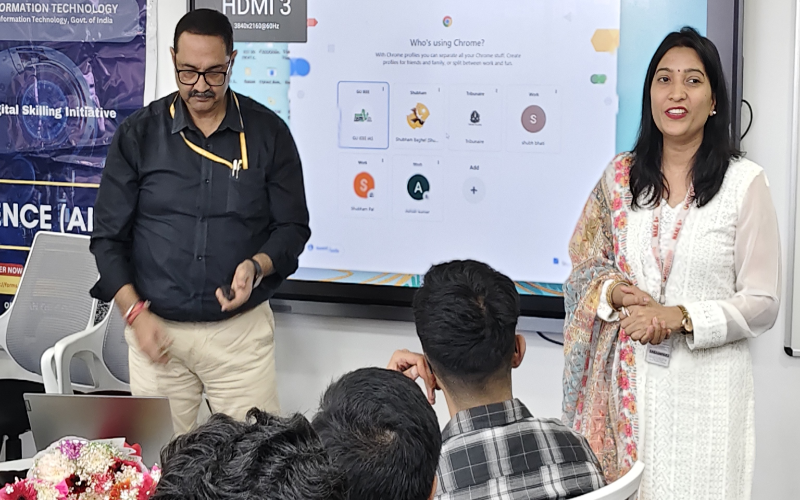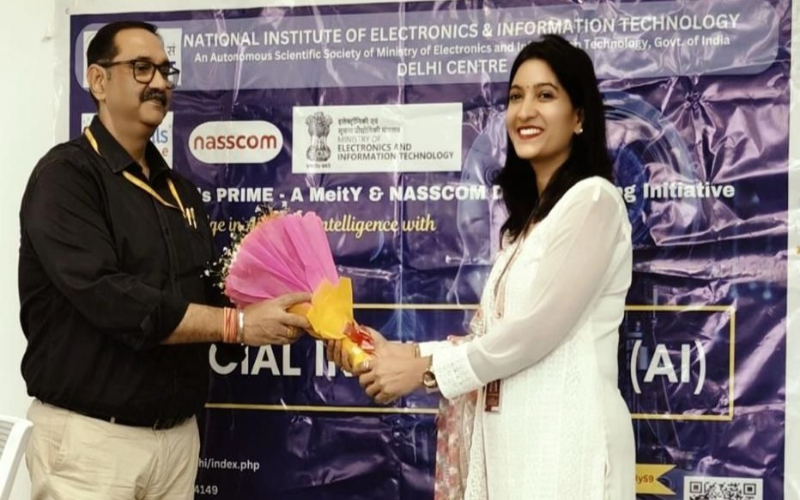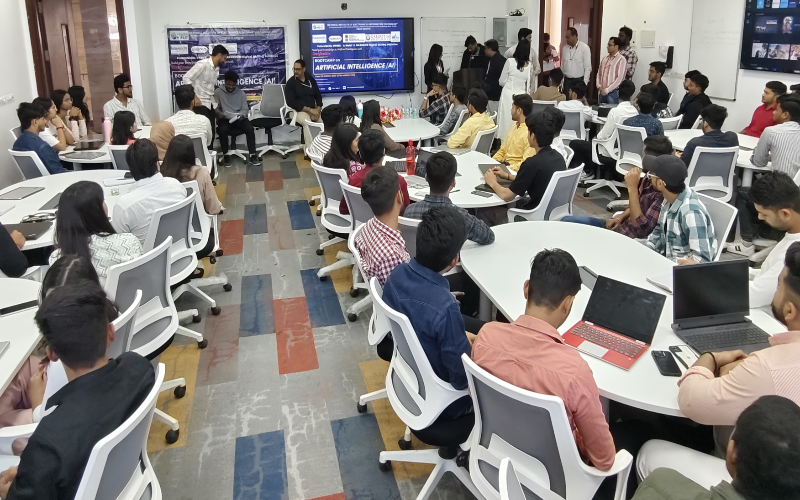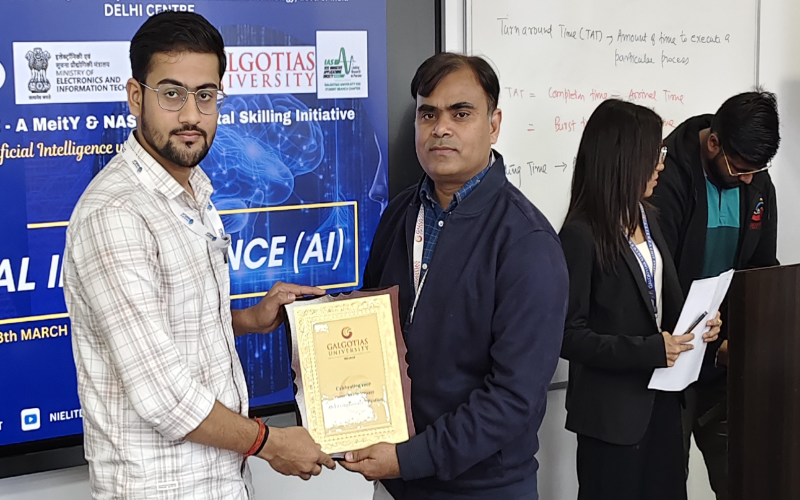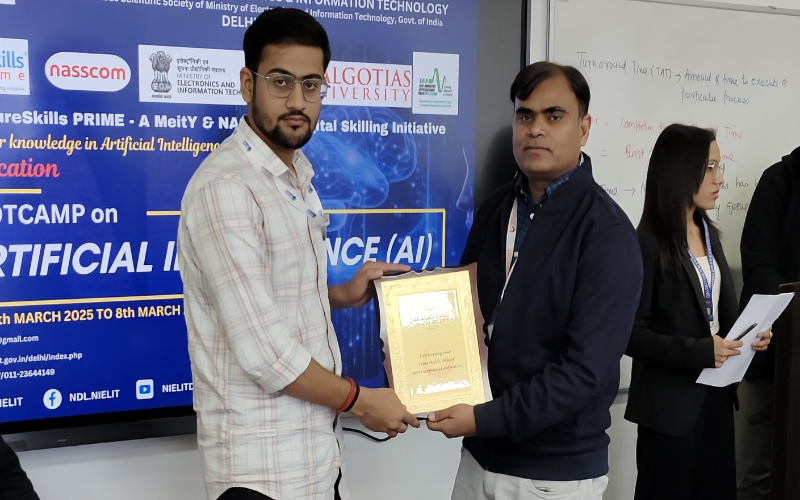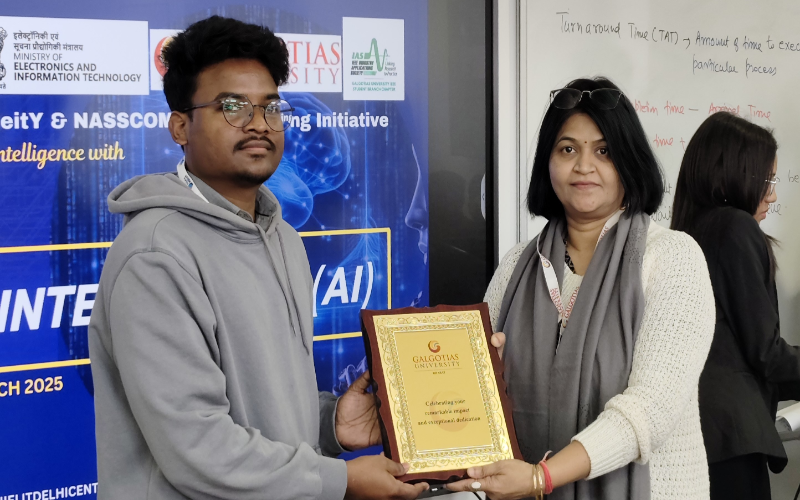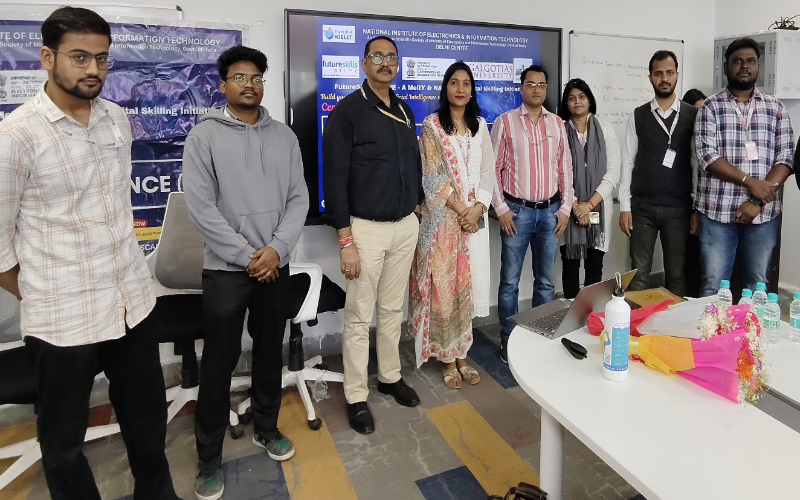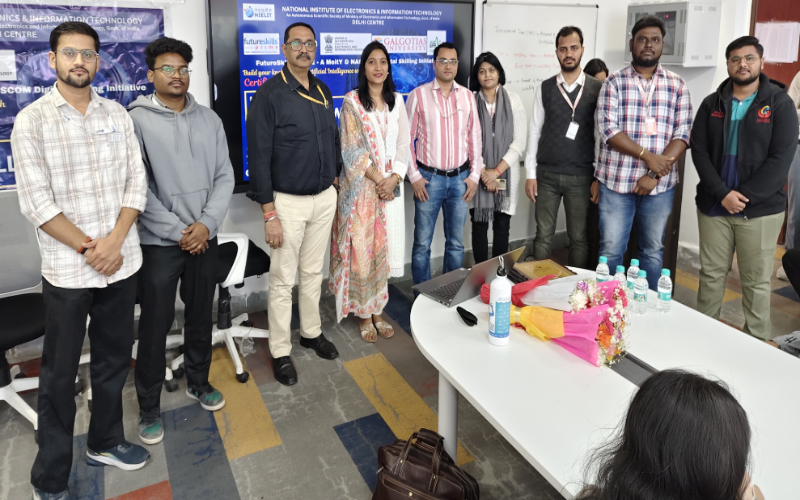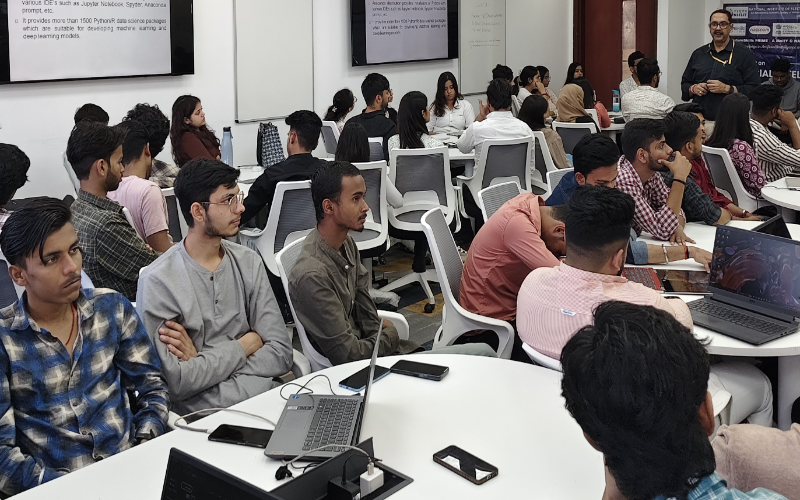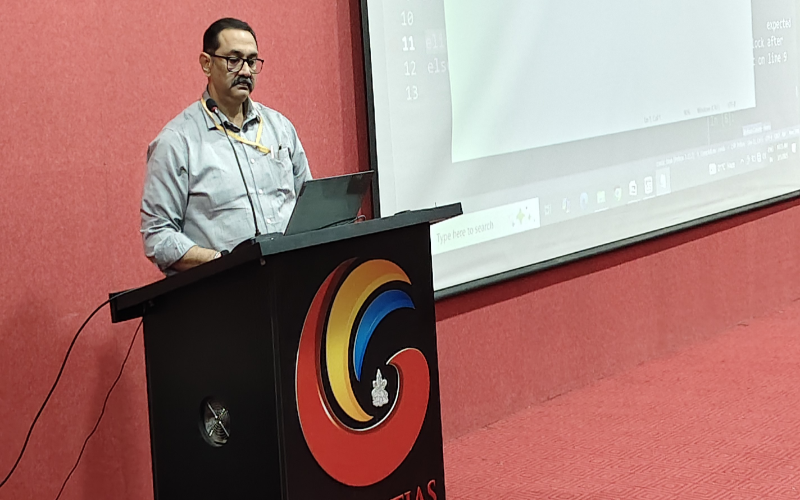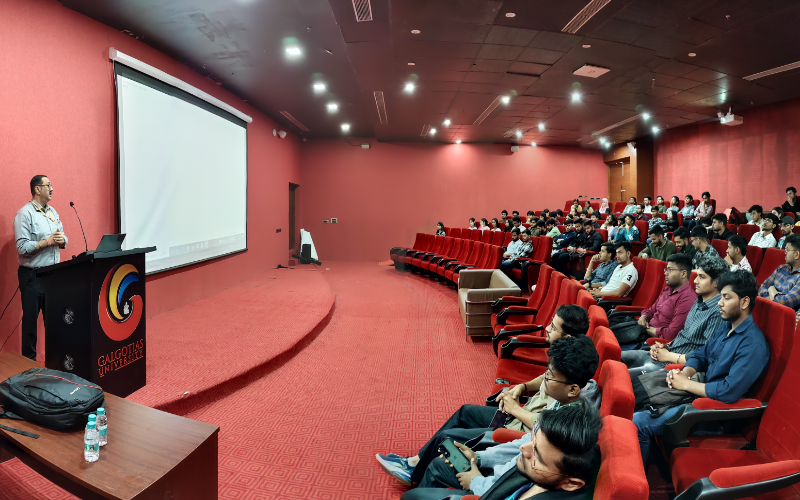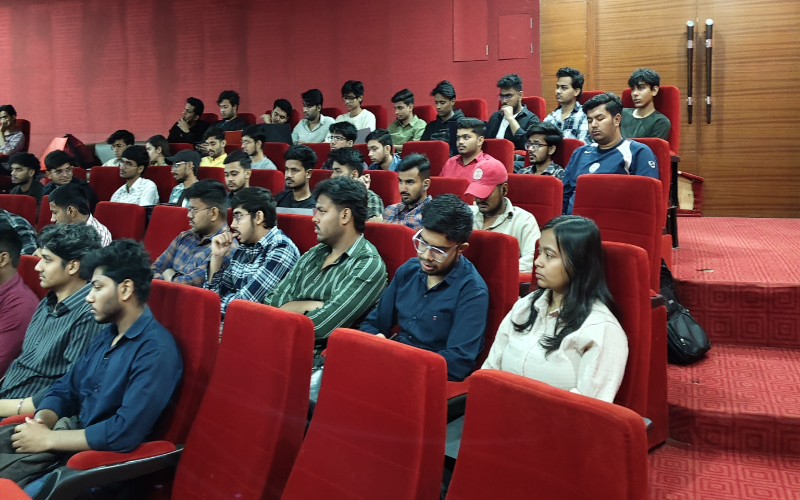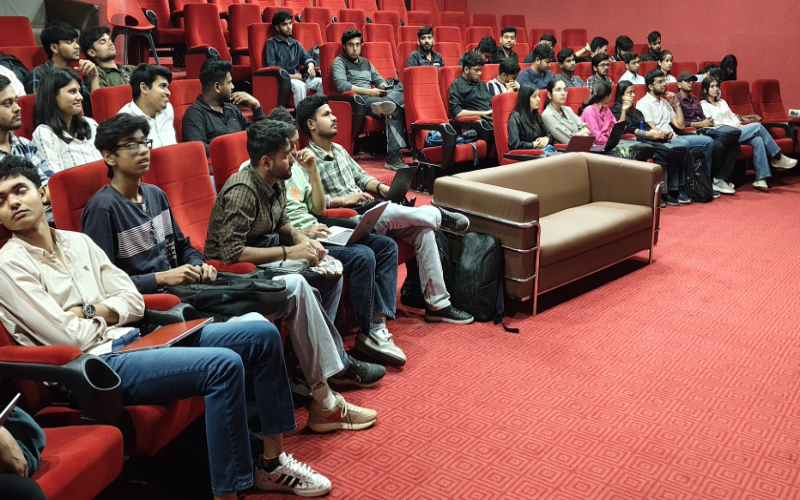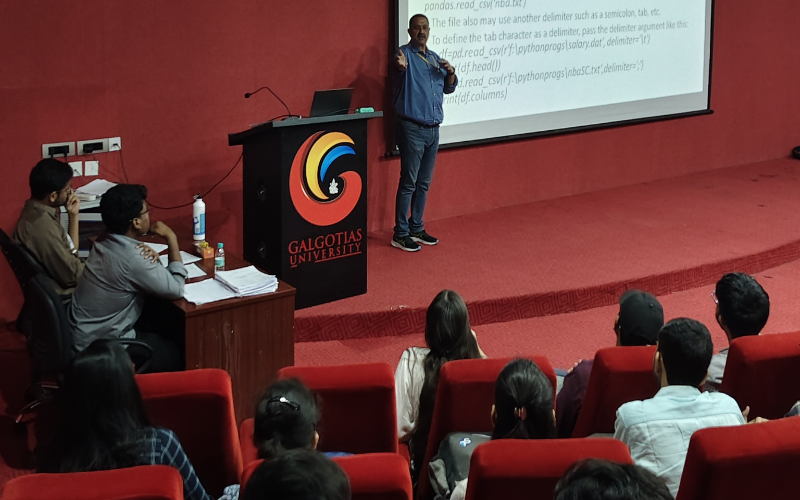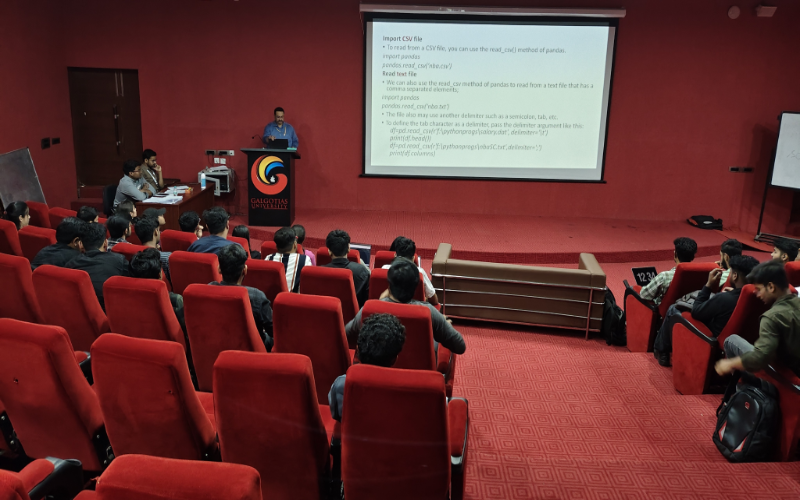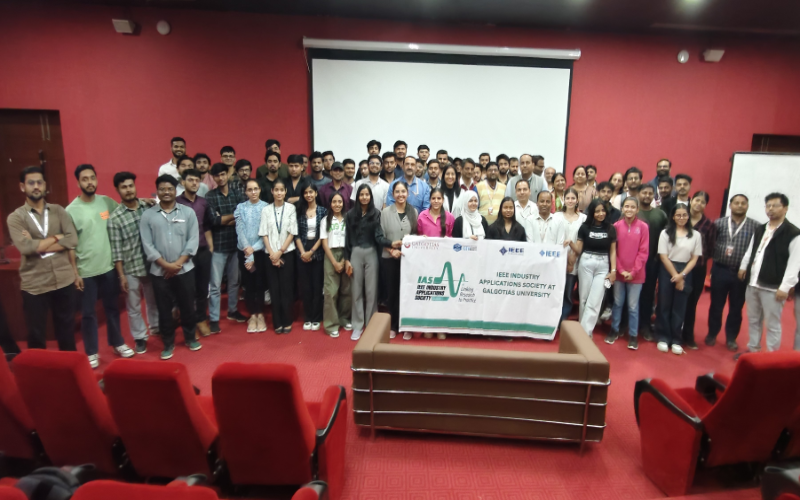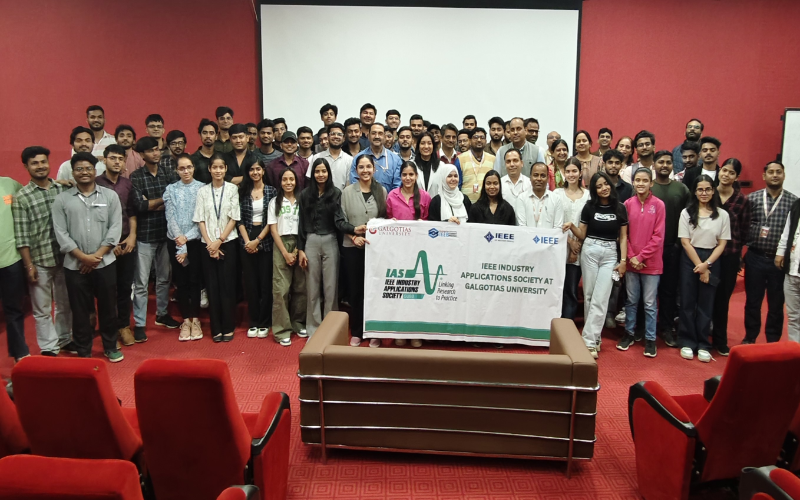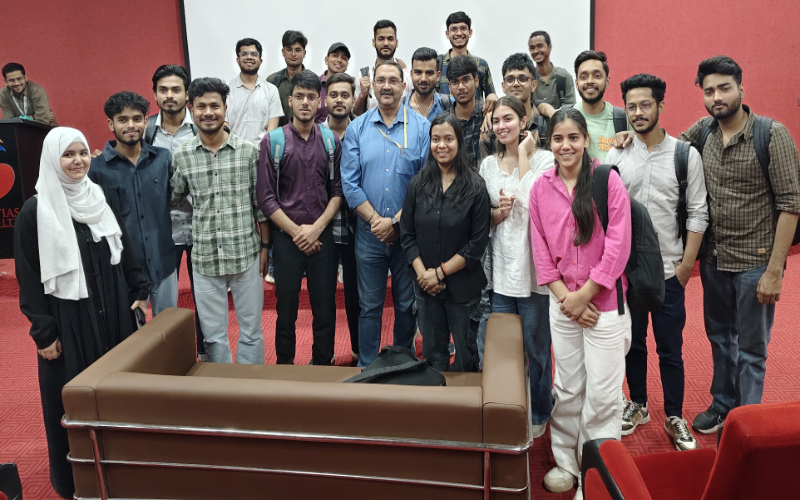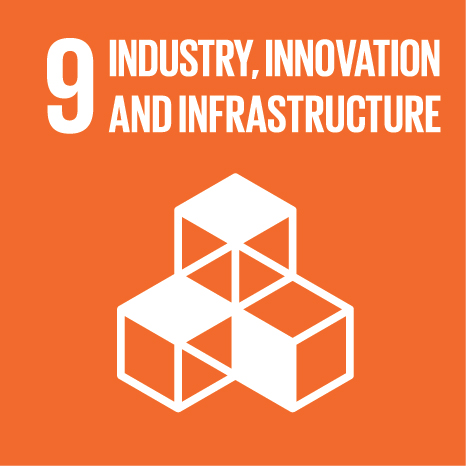Bootcamp on Artificial Intelligence
Day 4, 7th March 2025
Session Highlights:
The fourth and final day of the AI Bootcamp introduced participants to NumPy and Pandas, essential libraries for data manipulation in Python. The session aimed at providing a deep understanding of numerical computing and data handling techniques crucial for AI and machine learning applications.
Topics Covered:
- NumPy:
- Creating arrays, array operations, indexing & slicing
- Mathematical functions and broadcasting
- Practical applications in AI and data science
- Pandas:
- DataFrames and Series – creation, indexing, and manipulation
- Handling missing data, merging & grouping data
- Data visualization using Pandas
Hands-on Activities:
Participants worked on practical coding exercises using NumPy and Pandas to process and analyze datasets. They applied their learning to solve real-world data manipulation problems, reinforcing key concepts.
Test & Evaluation:
To assess understanding, a final test was conducted covering all the topics learned during the bootcamp. Participants demonstrated their coding skills and problem-solving abilities using Python.
Closing Ceremony:
The event concluded with a grand closing ceremony attended by the entire Electronics Department, faculty members, and students.
- The Head of the Department (HOD) Ma'am expressed her gratitude to the instructors for sharing their expertise and enriching students with valuable knowledge in AI.
- The Electronics Department faculty also extended their appreciation to the participants for their enthusiasm and dedication throughout the bootcamp.
Key Takeaways:
Areas for Improvement:
- More advanced real-world examples in NumPy and Pandas.
- Additional practice exercises before the final test.
- Extended time for interactive discussions.
Day 3, 6th March 2025
Session Highlights:
The third day of the AI Bootcamp introduced participants to the basics of Artificial Intelligence, covering fundamental concepts, real-world applications, and introductory AI techniques. The session aimed to build a foundational understanding of AI and its impact across industries.
Topics Covered:
Hands-on Activities:
Participants engaged in brainstorming sessions where they discussed real-world AI applications. Small interactive demos were provided to showcase AI in action, such as image recognition and chatbots.
Interactive Q&A Session:
The session concluded with an engaging Q&A, where attendees clarified doubts about AI concepts. The instructors shared industry insights and best practices to help students explore AI further.
Key Takeaways:
Areas for Improvement:
Day 2, 5th March,2025
Session Highlights:
The second day of the AI Bootcamp focused on Python Data Structures, covering essential concepts such as lists, tuples, and dictionaries. The session was designed to provide a solid foundation in handling and manipulating data in Python, which is a critical skill in artificial intelligence and data science.
Topics Covered:
- Lists: Definition, characteristics, operations (append, remove, slicing, iteration), and practical applications.
- Tuples: Immutable sequences, indexing, unpacking, and when to use tuples over lists.
- Dictionaries: Key-value pairs, accessing and modifying elements, dictionary methods, and real-world examples.
Key Takeaways:
- Understanding the differences between lists, tuples, and dictionaries.
- Gaining hands-on experience in working with Python data structures.
- Learning how these structures are applied in AI and machine learning.
Areas for Improvement:
- More complex examples to demonstrate data structures in AI.
- Additional practice sessions for beginners.
- Extended Q&A time for deeper discussions.
Day-1, March 4, 2025
Welcome Ceremony:
The event commenced with a warm and respectful welcome for the esteemed instructors. Shristhi delivered a brief yet insightful introduction of Sh. Partha Adhikari, Additional Director, NIELIT Delhi, highlighting his significant contributions to the field. Following this, he was honored with a flower bouquet and a memento as a token of appreciation.
Alongside him, Pawan Dwivedi (Tech. Support) and Akash Behra (Tech. Support) were also warmly welcomed and presented with flower bouquets and mementos.
This honor was extended by Dr. Meenakshi Awasthi (HOD, DEECE), Dr. Aditya Nath Bhatt, and the entire department, recognizing the instructors' valuable time and efforts in contributing to the success of the workshop.
About the Event:
The AI Bootcamp, organized by IEEE IAS Chapter X DEECE X NIELIT, was designed to introduce participants to the fundamentals of Python programming for artificial intelligence. The event aimed to bridge the gap between theory and practical implementation by covering key AI concepts, hands-on coding sessions, and real-world applications. Experts from academia and industry shared insights into Python-based AI development, helping attendees gain valuable skills in machine learning, data analysis, and automation.
Key Highlights:
- Hands-on coding sessions with Python for AI
- Introduction to machine learning libraries such as NumPy, Pandas, Matplotlib, and TensorFlow
- Real-world case studies and AI project demonstrations
- Interactive Q&A sessions with AI experts
- Certification provided to participants
Areas for Improvement:
